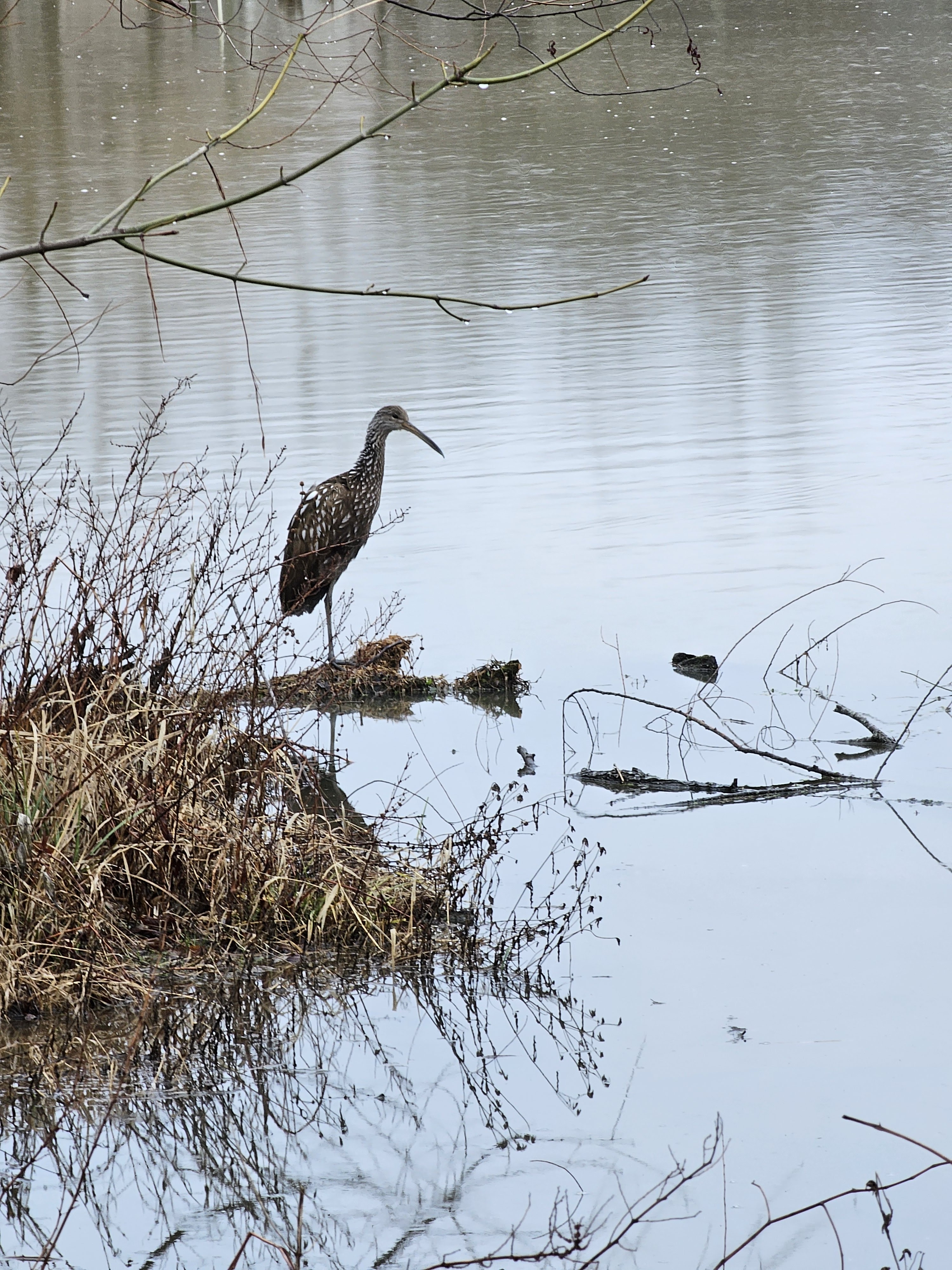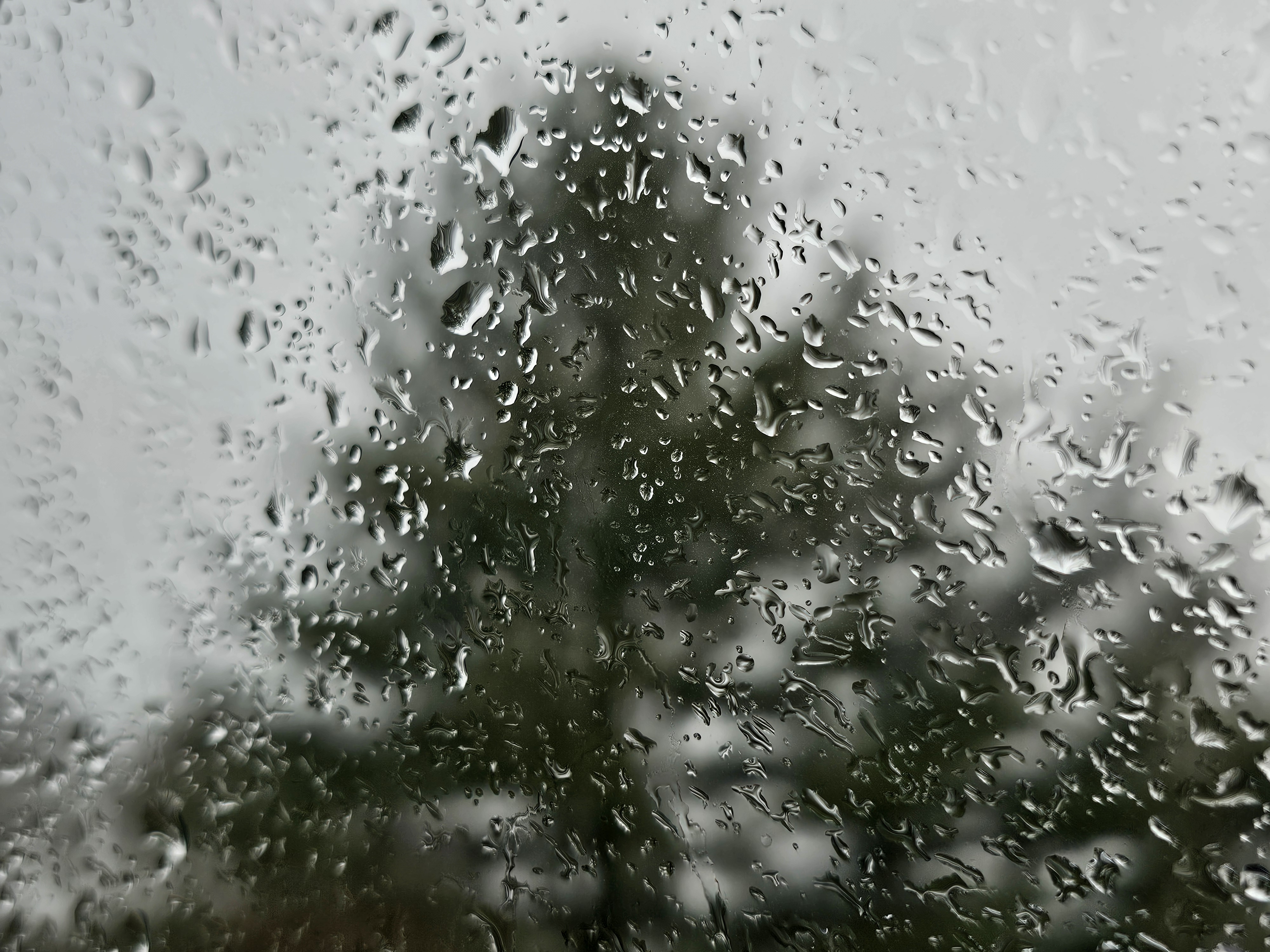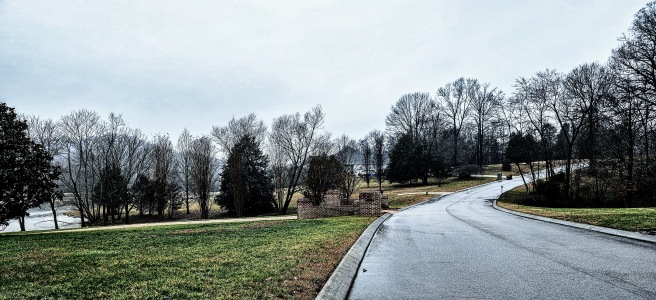This past Saturday, I woke to one of Tennessee’s typical grey winter days. After reading my morning portion of the Word, I caved in to my Aussie’s pleading stares and vocalizations. A quick check of the weather app assured me the looming clouds would not spill over for “at least 60 minutes,” nonetheless, I donned my rain gear and set off with the furry victor happily trotting at my side. Since my portion is in Job at present, it seemed appropriate to me to listen to said book while I walked to enhance my morning’s reading, and I decided to backtrack and listen from Job chapter 1.
The weather app lied.
About a half-mile into my walk, a misty drizzle started. It was fairly warmish and the drizzle was light, so I decided to keep going. Besides, my poor pooch had already missed several walks this winter due to my state’s bipolar weather and my own health issues. As I passed the lake, I noted my friend the limpkin still inexplicably hanging out at the water’s edge despite being a good 450-odd miles from the northern edge of his typical range – not to mention last week’s snowpocalypse.

He stared at me as I passed, possibly wondering why the crazy human trudges through the mist and still stops to snap photos of him. Good question. I moved on, listening to Job’s lament and feeling a bit dissatisfied with my choice. But I kept walking.
About halfway through my short route, the drizzle picked up to a light rain. By this time, Eliphaz, Bildad, and Zophar had begun their potshots and part of my mind drifted to my own times of trial. The rain lent a dismal ambience to perfectly complement the audio.
When the light rain began to drift toward downpour, I debated the merits of fighting the rain for control over my phone’s screen to make a call. Instead, I put my head down and determined to finish the last 3/4 mile or so as quickly as possible. Then I saw movement. Through the raindrops coating my glasses, a familiar vehicle drew near.
My husband had noted the increase in damp and come to my rescue. Hallelujah!

The whole experience reminded me of a dark and dismal time in my life. Like Job, I’d lost a lot (though not all). The people I’d called “friend” abandoned me in my hour of need, and I felt myself alone, groping through a cold and misty waste with nowhere to turn. Then out of nowhere, as I trudged ahead in a grim and hopeless determination, my Rescuer appeared.
I found the Word of God – not just the Book but the Redeemer it speaks of: Yeshua Messiah, Jesus the Christ, Immanuel, God-With-Us. My Lord and my God. In my darkest hour, in abject fury and despair, I shouted my unbelief and unbelievably, He came to my rescue anyway.
He took me under the shelter of His wings and slowly began the work of healing my wounded heart, untwining the deeply-rooted sins that infected my soul, and cleaning up the mess I’d made. My journey since then has still had moments of despondency and pain, but I now have a safe and warm destination to look forward to.

Just as my husband picked me up and drove me home, my Lord and Savior is carrying me through the murk of life. And I know that someday, He will bring me Home. This is what I keep in mind when Job’s lot seems to be my portion. Even without the Book, Job himself clung to this hope and kept going.
My friend, so can you.
For I know that my Redeemer lives, and at the last he will stand upon the earth. And after my skin has been thus destroyed, yet in my flesh I shall see God.
(Job 19:25-26)
























